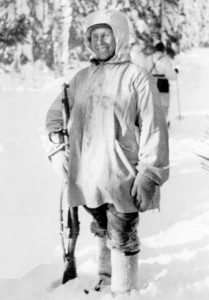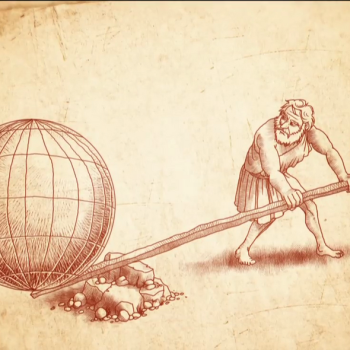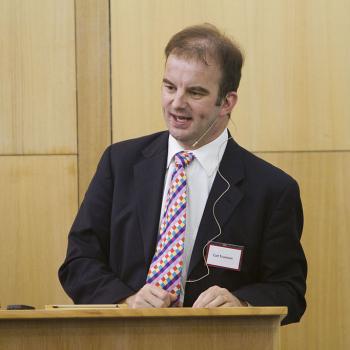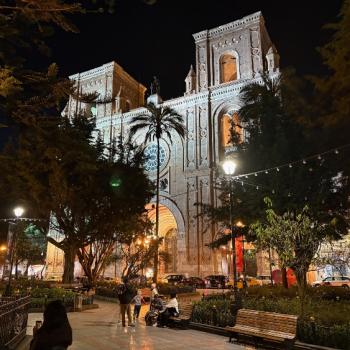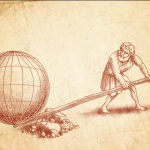A nation is defined by its history and its people’s common experiences. That is especially true of nations whose citizens, for the most part, share a specific ethnic identity. In Finland, where I spent some time recently, history is a living force.
For some 500 years, Finland was part of Sweden, a region in the East where members of the Finnish tribe dwelt. Finland was Swedish during the 17th century when that kingdom was a world power, as the Swedish kings saved Lutheranism during the Thirty Years’ War and dominated much of Northern Europe. To this day, Finland has a Swedish-speaking minority.
But then, in 1809, Sweden lost a war with Russia. Finland, on Russia’s border, was ceded to the Czar, who made it an autonomous Grand Duchy under his authority. So Finland went into its Russian phase, though it resisted assimilation.
When the Communist Revolution broke out, Finland saw its chance. It declared independence and established itself as a free republic. This happened in 1917, so that this year Finland is celebrating its 100th anniversary.
The Communists had their own problems in 1917 so basically let Finland go. Some Finns, however, were on the Bolshevik side, so the new nation fought a bloody civil war, with the “Whites” defeating the “Reds.”
But in 1939, Stalin resolved to take Finland back. Soviet troops poured over the Finnish border. In this conflict, known as the “Winter War,” the Soviets outnumbered the Finns three to one, with 30 times more airplanes and 100 times more tanks.
I was told that the president of Finland then was a devout Christian. He called upon all Finns to pray. And they did.
The Soviets, assuming the conquest would be easy, forgot what they taught Napoleon and attacked in the winter. Finnish winters are brutal–it snowed nearly every day when we were there, in April–and the winter of 1939 was especially snowy and cold, with temperatures as low as 45 degrees below zero. The Russians were dressed in temperate-weather olive-drab uniforms, making them easy targets in the snow. The Finns wore white snowsuits and were virtually invisible. They also fought on skis.
The Finns slaughtered the Russians, hitting them in surprise attacks and then skiing away, ambushing them in the forests, and shooting them from afar. One Finnish sniper, Simo Häyhä, had 505 confirmed kills, setting the record for this military specialty. Counting unconfirmed and non-sniper combat, the number might have been as high as 800. The Russians called him “The White Death.”
(Firearms are part of Finnish culture. Today Finland has the highest rate of firearm ownership in Western Europe, ranking 6th in the world. And to this day every male citizen must serve in the military.)
Though the Russians did seize some Finnish lands, they quit the invasion. Just in time for World War II.
With Germany’s invasion of Russia, the Finns saw an opportunity to regain Finnish territory seized by the Russians in the Winter War and prior to that. So, not to their credit, the Finns allied themselves with Nazi Germany and attacked Russia. Finland did not, however, join the Axis coalition, fighting more in parallel with the Nazis. When the Nazis asked Finland to turn over its Jews, the president refused, having consulted with church leaders who told him, “do not touch the apple of God’s eye!”
After hard fighting and the futile siege of St. Petersburg (only 188 miles from Helsinki), Finland signed its own peace treaty with Russia. One provision required them to eliminate the German presence in Finland. Whereupon Finland then began a war with Nazi Germany! And did drive them out.
During the war years, Finland suffered terribly. Thousands of parents sent their children to neutral Sweden in order to keep them safe (like the Pevensey children in The Lion, the Witch, and the Wardrobe). After the wars, when the children returned, they had largely forgotten their parents and could no longer speak Finnish. The trauma of this separation haunted the post-war generation.
During our stay at the Bible College, the dining hall once served an odd-looking dessert. It looked like rough-textured chocolate, but it was only faintly sweet, with the taste of various dessert spices. I wouldn’t go so far as to say it tasted good. We asked someone at our table what it was. “That’s mämmi,” we were told. “It’s made out of rye flour. Finnish women made it during the war. We ate it when we were starving. Now it’s a special treat for Easter.”
I later learned that mämmi goes back to the Middle Ages, but during the war-time food shortages, it was easily mixed up from rye flour stores even when there was little else. We were then told that after the war, when Americans were rebuilding Europe with the Marshall Plan, representatives of that program came to Finland and saw people eating mämmi. They sent back an urgent report to Washington: “We have got to send food to this country first. The people are reduced to eating [excrement]!”
Today, Finland has a lot going for it. Still a small country of only 5.5 million, it is another of those curious Scandinavian combinations of welfare state plus free market economics. Finland is prosperous (the home of high-tech companies from Nokia to the folks who gave us “Angry Birds”). It has a free national health care system that seems to work well. (One of our host’s family members got sick and went to the doctor on a Sunday night.) It has some of the best and most effective schools in the world. And the Finns were recently rated “the fifth happiest country in the world.” (Norway and Denmark are #1 and #2; then Iceland and Switzerland. The USA is #19.)
I gave my audience a hard time with that rating. When I brought up how happy they were, they laughed. Finns, though very likable, are not, on the whole, what I would call cheerful; rather, they tend to be serious and intense. I told them that with their happiness rating, however miserable they are, they can have the consolation that most of the rest of the world is far more miserable.
But this a nation that has been through a lot, and the memory is still raw. “When we were starving.” Not when our grandparents were starving back during the war, but when we Finns were starving. They still eat the starvation rations from back then. But now they associate it with Easter.
Photo of sniper Simo Häyhä,by Simo_hayha_honorary_rifle.png: Finnish Military Archives derivative work: Materialscientist [Public domain], via Wikimedia Commons


